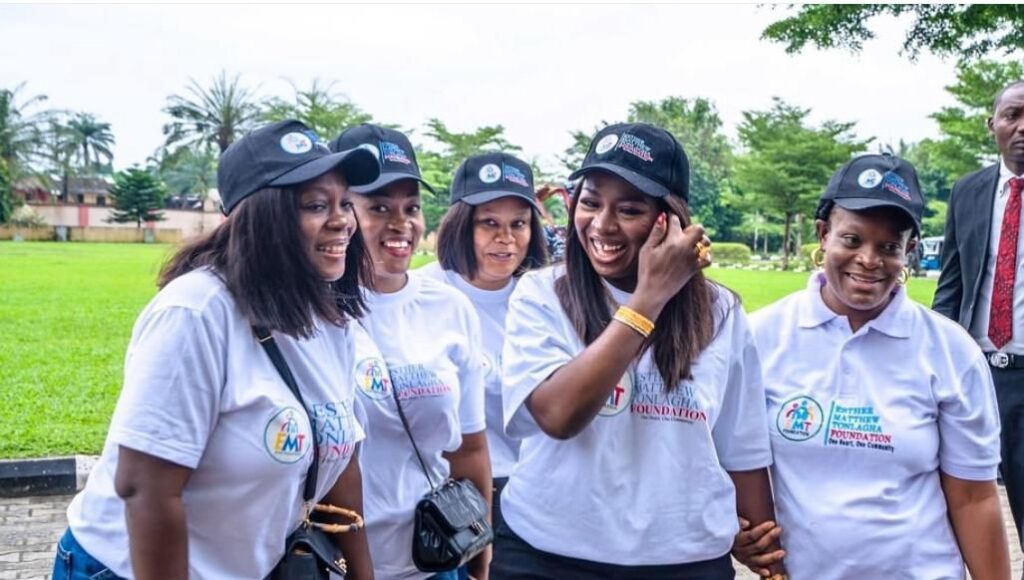In the oil-rich yet economically fragile Niger Delta, where unemployment and underemployment have long stifled youth potential, a quiet revolution is underway—one powered not by oil rigs or political decrees, but by skill, enterprise, and the will to rise.
On a bright weekend in Warri, Delta State, 36 young men and women stepped into a new chapter of their lives as the Esther Matthew Tonlagha (EMT) Foundation graduated its Batch B trainees in a colourful ceremony that merged celebration with a clarion call for responsibility.
The graduates trained in Cakes & Events, Fashion Design, Makeup & Gele, Culinary Arts, and Salon Services—had completed intensive programmes spanning from three months to a full year.
“Each left not only with a certificate but also with essential start-up equipment and a cash grant of ₦500,000, a tangible boost designed to turn classroom skills into thriving businesses.
For those in culinary arts, the Foundation presented generators, deep freezers, ovens, industrial cake mixers, and gas cylinders. Cake & Events graduates received similar toolkits, while Makeup & Gele beneficiaries were equipped with professional makeup kits, chairs, lighting tables, lash machines, and other essentials to immediately launch their enterprises.
This practical support is the hallmark of the EMT model—training that does not end with theory, but flows directly into action. As Founder Mrs Esther Matthew Tonlagha explained, “Today is not merely a celebration of certificates, but of skills mastered, journeys completed, and lives on the cusp of renewal.
These are not just vocational skills; they are instruments of empowerment. You now carry the power to shape your future, uplift your family, and plant seeds of prosperity in your community.”
The EMT Foundation’s approach begins long before a single class is held. Enrolment is via open ballot, followed by a careful screening process to ensure that applicants not only need the skills but are committed to using them for personal growth and societal benefit.
Once admitted, trainees are placed in the best skill acquisition centres in centrally accessible locations to guarantee both quality and inclusivity.
Programmes are tailored in duration—three months for Cake & Events, six months for Salon Services, and a full year for Fashion Design—to ensure mastery.
The model reflects the Foundation’s guiding belief: that empowerment is only complete when it equips, trains, and launches.
Since officially beginning operations with a dedicated team in December 2023 after more than eight years of informal interventions—EMT has expanded its reach through targeted empowerment drives, medical outreaches, and infrastructure upgrades, including the renovation and equipping of the Okenrekonko Cottage Hospital.
The graduation ceremony unfolded as part celebration, part mentorship seminar, with speakers weaving personal stories into practical lessons.
In her keynote address, Tonlagha challenged graduates to become wealth creators, not merely service providers.
“Take up space,” she urged. “Your talent deserves a place in the world. Let your creativity flow and your resilience shine. This is only the beginning—the sky is your starting point.”
Delta State House of Assembly Speaker Rt. Hon. Emomotimi Dennis Guwor, represented by Pastor Ambrose Omafuwe, framed the event as a beacon of social equity and economic upliftment.
“The EMT Foundation has not only given fish, but has taught the art of fishing—empowering our youth to become builders of industry, agents of change, and guardians of their own futures,” he said. Guwor praised the Foundation’s alignment with Governor Sheriff Oborevwori’s Renewed Hope Agenda and urged the graduates to go forth “with diligence, boldness, and purpose.”
If Tonlagha and Guwor spoke of vision, the invited guest mentors spoke of the grind—what it truly takes to turn capital, whether large or small, into lasting enterprise.
The Chief (Mrs) Blessing Pondi, CEO of Emomel Multi-Concept Investment Limited, distilled her 17-year entrepreneurial journey into a lesson in humility, discipline, and relationships.
She recounted how she began in 2008 with just 20 bags of rice, reinvesting earnings rather than touching her capital. That mindset, she said, applies regardless of the starting amount: “If you can’t run a business with ₦200,000, you won’t succeed with ₦500 million.”
Her expansion into pig farming and poultry—growing from two pigs to over 200, and from 2,000 birds to 50,000—was a testament to persistence. She reminded the graduates that money is not the only starting capital: “Sometimes, relationships are your starting capital.
And good behaviour is non-negotiable.”
Elozino Mamah, Creative Director of Zion Cakes and Events, offered a roadmap for setting up a business in today’s digital-first market. Passion, she insisted, must be the starting point.
“Choose a business you love so you can thrive. Every business solves a problem. Use social media—it’s where 90% of my clients come from. Start small; Rome wasn’t built in a day.”
Her tips ranged from the practical—registering your business name early, learning product photography, and maintaining a clean workspace—to the philosophical: “Excellence is what sets you apart. Appreciate your clients, deliver quality, and present yourself professionally. Dress the way you want to be addressed.”
Chief (Mrs.) Ebimaboere Dennis Otuaro, wife of the Presidential Amnesty Programme Administrator and an active farmer, delivered a warning against absentee ownership. “If you leave everything to workers, they will run you out of business,” she cautioned.
“Be present, manage your capital, and adapt to customers’ needs. If you’re not ready to work, don’t take the slot—opportunities like this don’t come every day.”














